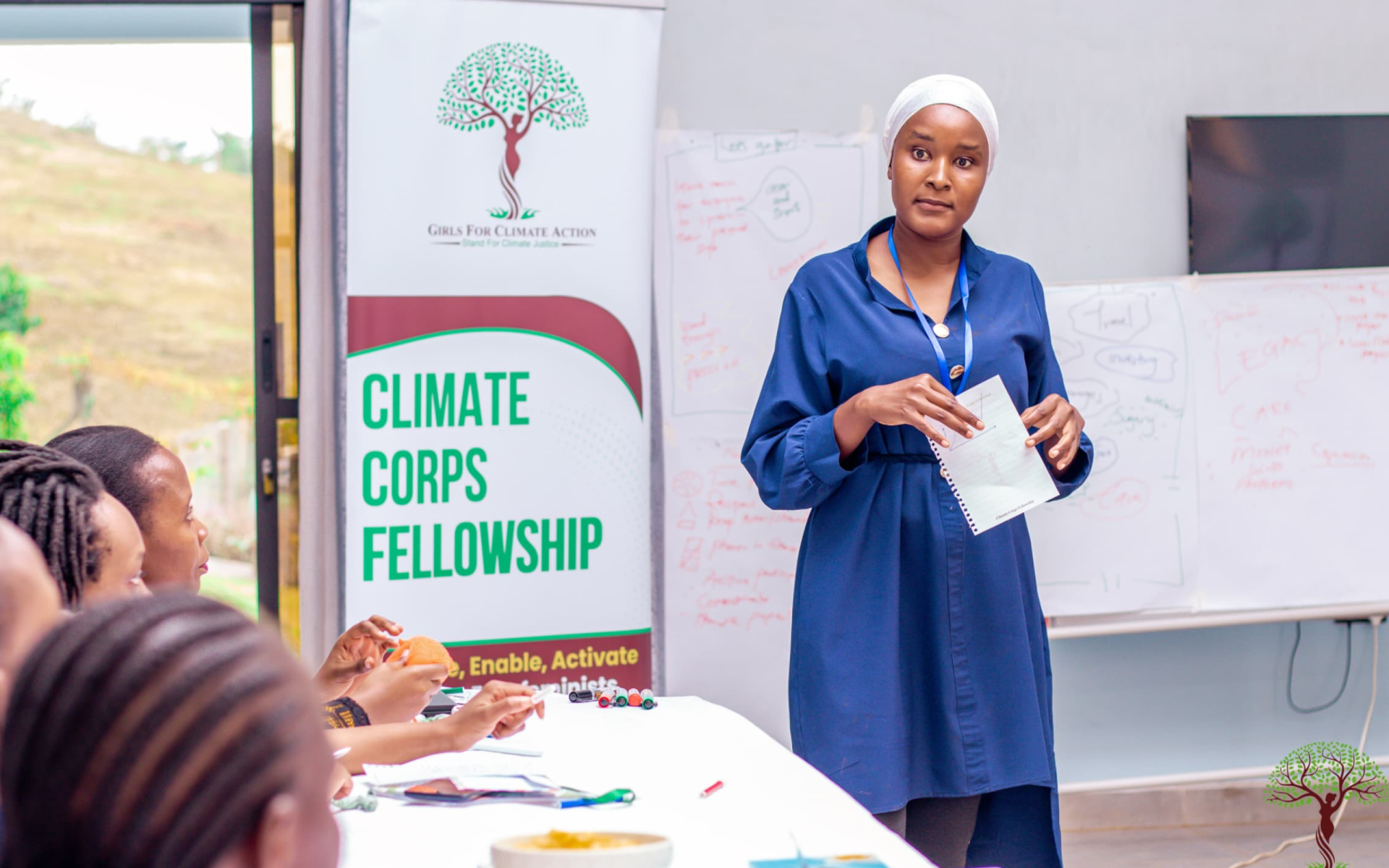Facilitating community-led climate action has been a key highlight in my service in Kitabazi village, Buikwe district. Recognised as a proper land use management strategy, agroforestry not only contributes to climate change adaptation and mitigation. It provides solutions to challenges facing local communities in agriculture and clean energies. The CorpsAfrica Green initiative provided me with invaluable lessons and insights in integrating climate change action and economic activities in rural communities. In as much as my background is in the medical field, I discovered a new passion in climate action strategies to mitigation and adaptation having witnessed first-hand the negative impacts of climate change in local communities.
Growing up, I witnessed the devastating impact of climate change on my community. Rising temperatures, droughts, and deforestation threatened our livelihoods and ecosystems. I realized that climate change wasn’t just an environmental issue, but a social justice and human rights concern.
In my community, I have seen how women bear gender household responsibilities including childcare, cooking, firewood collection, cleaning, and farming for domestic consumption. With limited mitigation or adaptation strategies to climate changes, people especially women in rural communities feel the negative effect. This could lead to increased burden on women for household responsibilities. These include collecting water and food production, higher risk of gender-based violence and displacement during climate-related disaster, limited access to resources, credit, and technology for women farmers and entrepreneurs, and greater health risks for women and children due to climate-related hazards like heatwaves and malnutrition.
Community led climate innovative solutions are crucial for enhancing resilience, mitigating and adapting to climate changes sustainably. Working together with the community group of about 50 members, I successfully facilitated the construction of tree nursery beds of avocado, passion fruits, mangoes, cocoa, and coffee trees. This initiative promotes conservation while generating economic benefits for the community.
What motivated me to take action was the realization that reforestation can be a powerful solution. Trees absorb carbon dioxide, provide oxygen, and support biodiversity. But it is not just about planting trees. It is about empowering communities, promoting sustainable land use, and addressing the root causes of climate change.
This initiative demonstrates the potential for community-led climate action, merging environmental sustainability with economic development. By scaling such projects, we can accelerate carbon sequestration efforts, support climate-resilient agriculture and foster sustainable development.
Join the movement towards a climate-conscious future!

